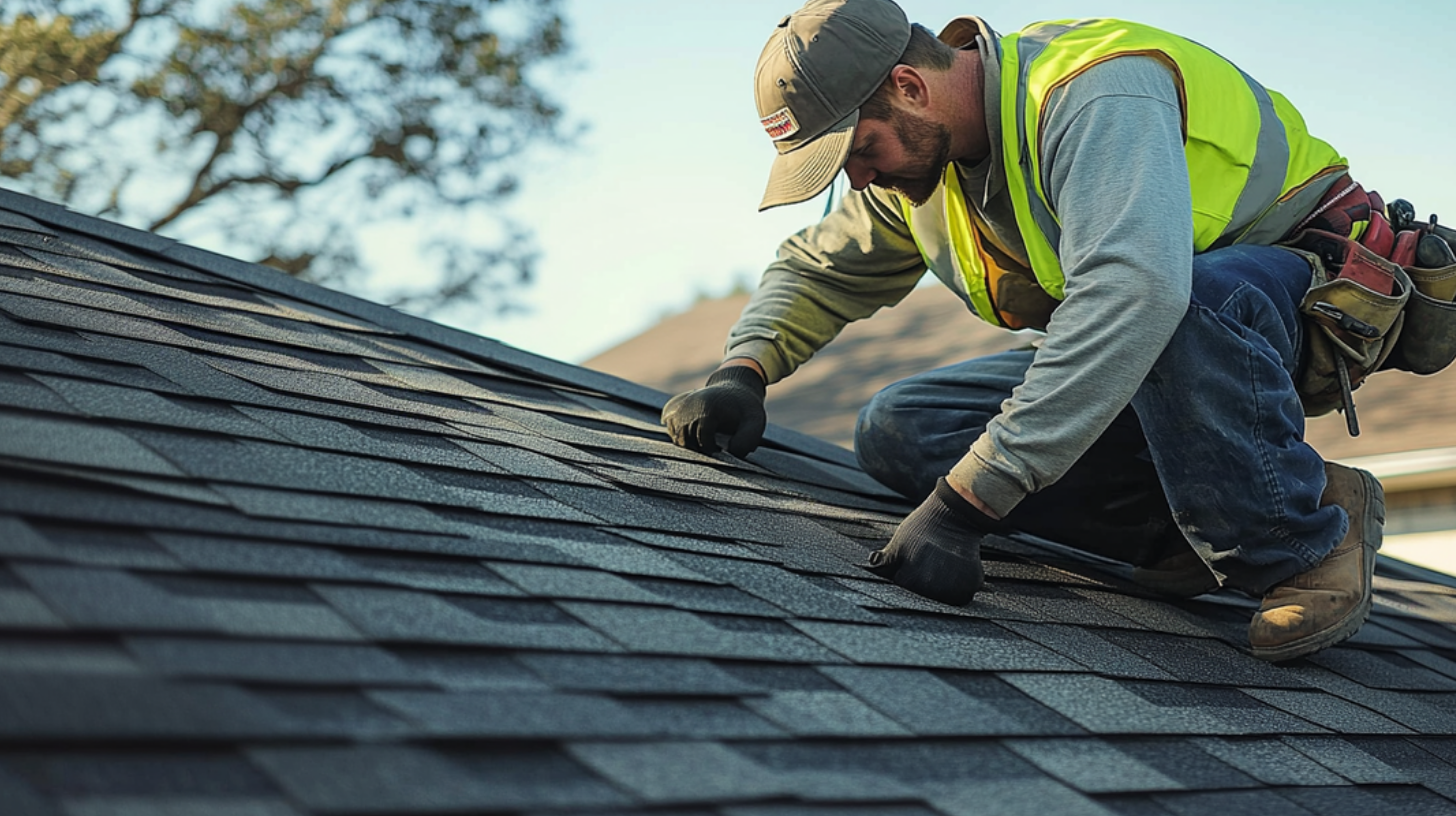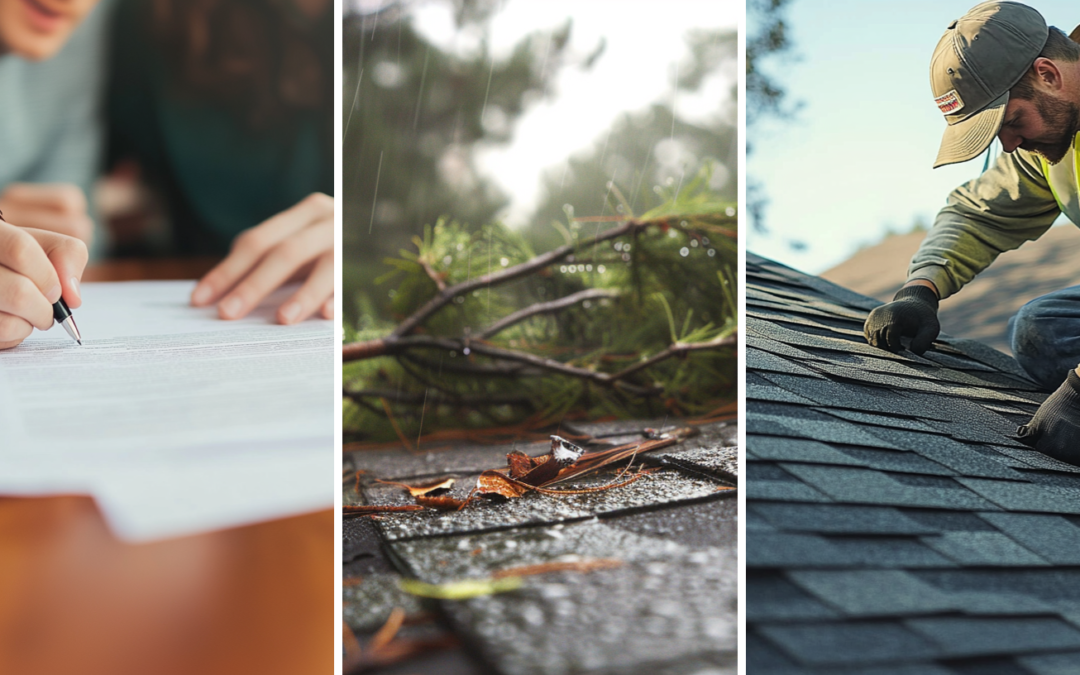Understanding the Terms in a Roof Installation Warranty
Terms outlined in a roof installation warranty are crucial for homeowners to understand when investing in a new roof. A roof installation warranty acts as a formal agreement between the contractor and the property owner, specifying the conditions of coverage for the work performed. With such a significant investment at stake, homeowners must be fully informed about these terms to protect them against potential defects or issues arising after installation. The importance of warranties cannot be overstated, as they safeguard your roofing investment and provide peace of mind, offering recourse if problems occur. Whether covering material defects or workmanship errors, a clear understanding of warranty terms is key to ensuring your new roof delivers the expected protection and performance for years.

Terms - Types of Warranties for Roof Installations - Sky Roofing Construction & Remodeling
Types of Warranties for Roof Installations
When investing in a new roof, homeowners should familiarize themselves with the various warranties available, as these contracts provide essential protection and peace of mind regarding their investment. Two types of warranties are primarily associated with roof installations: material warranties and workmanship warranties. Material warranties cover defects in the
roofing materials, often lasting several years and provided by the manufacturer. On the other hand, workmanship warranties are issued by contractors to guarantee the quality of their installation work. Depending on the contractor’s policies and reputation, these warranties vary in duration and terms. Understanding these distinctions helps homeowners make informed decisions and ensures they receive the necessary support in case of issues arising from either materials or installation.
Manufacturer’s Warranty vs. Contractor’s Warranty
Understanding the differences between a manufacturer’s warranty and a contractor’s warranty is essential for homeowners and building owners when investing in a new roof. A manufacturer’s warranty primarily covers defects in roofing materials, typically offering protection for 5 to 30 years, depending on the product. This type of warranty assures that the materials will perform as expected and are free from manufacturing defects, a key aspect of product warranties.
In contrast, a contractor’s warranty focuses on workmanship, ensures the installation is done correctly, and usually lasts between 1 and 5 years. It’s important to note that some manufacturer warranties may require the contractor to perform necessary repairs within a certain timeframe post-installation to maintain coverage. Both warranties are crucial for providing peace of mind, protecting your investment, and ensuring you receive quality roofing that meets industry standards.
Material vs. Labor Warranties
Material warranties protect against manufacturing defects and premature deterioration of roofing materials, ensuring homeowners are covered for issues stemming from the product itself. However, these warranties do not account for installation errors or defects incurred during labor.
Conversely, labor warranties cover the cost of labor required for repairs but exclude any materials, meaning you could face out-of-pocket expenses for defective products. Understanding these warranty limitations is vital for homeowners and building owners alike, as it highlights the importance of hiring qualified professionals for installation. Proper workmanship not only maximizes warranty coverage but also minimizes potential repair costs associated with installation errors.
Full System Warranty vs. Limited Warranty
A full system warranty offers comprehensive coverage that includes materials and labor for necessary repairs, providing peace of mind knowing that all roof system components are protected under a single agreement. In contrast, a limited warranty may only cover specific materials or components, which can leave significant gaps in coverage.
It’s important to note that full system warranties typically require all components sourced from the same manufacturer to ensure compatibility, further enhancing the warranty’s effectiveness. This can impact maintenance responsibilities; while a full system warranty generally implies a higher level of protection, it might also come with conditions regarding proper maintenance.
Homeowners should carefully review these warranties to understand their implications, ensuring they choose the option that best protects their roof investment while minimizing future repair costs.

Terms - Key Terms and Coverage in a Roof Warranty - Sky Roofing Construction & Remodeling
Key Terms and Coverage in a Roof Installation Warranty
A roof installation warranty serves as a safeguard, protecting your investment against defects in materials and workmanship over a specified period. Typically, warranties vary in their scope and duration, with some covering a range of issues such as leaks, peeling, or structural failures. Familiarizing yourself with key terms, such as “material defects,” “workmanship,” and “exclusions,” is crucial, as they define what is covered under the warranty and what is not. Knowing the difference between manufacturer and workmanship warranties can help you make informed decisions about your roofing investment. With this knowledge, you can ensure that your roof is an aesthetic enhancement to your property and a durable and secure barrier against the elements, ultimately providing peace of mind for years to come.
The standard warranty period for roofing materials typically ranges from 25 to 40 years, depending on the type of material used. For instance, asphalt shingles generally have a 25 to 30-year warranty, while metal roofs may offer coverage beyond 40 years. Homeowners often have the option to purchase extended warranties, which can provide additional peace of mind and protection against unforeseen issues. It’s important to note that the coverage length can be impacted by the material type, making it crucial for property owners to choose wisely. Additionally, working with authorized contractors can unlock enhanced warranty options, ensuring you receive the best protection for your roof.
Roofing material warranties typically offer protection against defects for an extended duration, often spanning 25 years or more. However, it’s important to note that these warranties may come with coverage limitations, excluding specific materials or installation costs that can lead to unexpected out-of-pocket expenses over some time. While roofing warranties serve as a safety net against particular defects, they do not provide comprehensive protection, leaving homeowners responsible for certain issues that arise post-installation. For this reason, a thorough comprehension of the coverage terms of roofing warranties is essential to ensure proper coverage and safeguard your investment in your property.
Regular maintenance and professional inspections are key components that help uphold the roof warranty, ensuring that your roofing system remains in excellent condition over time. Engaging the original contractor for any necessary repairs not only maintains the integrity of the warranty but also enhances the reliability of the guarantees offered. It is vital for homeowners to promptly address any roof issues that arise, as neglect could lead to costly repairs amounting to thousands of dollars and compromise the roof’s performance and longevity, especially in the face of severe weather. By prioritizing maintenance, conducting routine inspections, and taking swift action on repairs, you can safeguard your roof warranty and ensure your home remains protected for years.
Repair and Replacement Guidelines
Regular inspections play a vital role in maintaining the integrity of your roofing system and ensuring compliance with manufacturer requirements, which is essential for preserving warranty coverage. It’s important to note that using certified contractors or professional roofers for repairs is likewise crucial; warranties often exclude labor costs associated with roof replacement, making professional expertise indispensable. Additionally, the type of shingles—particularly asphalt shingles—can significantly influence warranty terms, with variations existing across different manufacturers. Proper installation techniques are paramount to avoid material failures and maximize the lifespan of your roofing system. By following these guidelines and emphasizing certified workmanship, homeowners can safeguard their investments and ensure their roof warranty remains valid for years.

Terms - Exclusions and Limitations in Roof Warranties - Sky Roofing Construction & Remodeling
Exclusions and Limitations in Roof Warranties
When exploring roof installation warranties, it’s vital to understand the common exclusions and limitations that may affect coverage. Most warranties do not cover subsidiary damage to structures or personal belongings, which means any damage incurred due to roofing issues typically falls on the homeowner. Additionally, damage caused by standing water is often excluded, as proper drainage is a homeowner’s responsibility.
Acts of God, such as severe storms or natural disasters, usually fall outside warranty protection, leaving homeowners vulnerable to unexpected repair costs. Furthermore, negligence or improper installation by the homeowner or other contractors, including work performed by a non-reputable contractor, can void a warranty entirely.
Recognizing these exclusions and limitations is crucial for managing expectations and preparing for potential out-of-pocket expenses. Homeowners should carefully review warranty terms to ensure they are well-informed and can avoid any surprises down the line, providing peace of mind with their roofing investment.
A transferable roof warranty allows homeowners to transfer the warranty coverage from one owner to the next, enhancing the property’s appeal during a sale. This feature is particularly beneficial for prospective buyers, as it offers assurance that the roof is protected, often leading to a higher resale value.
To initiate a warranty transfer, homeowners typically must pay a transfer fee and comply with specific requirements set by roofing manufacturers. These may include obtaining a roof inspection to ensure the roof is in good condition and completing any authorized repairs necessary to validate the transfer, which could involve additional costs.
Homeowners need to keep all warranty paperwork organized and accessible. Meeting the manufacturer’s deadlines for transfer requests ensures the warranty remains valid, providing both sellers and buyers peace of mind.
A transferable warranty adds value to the home and enhances its marketability, making it a significant consideration for homeowners looking to sell. Residents can improve their property’s longevity and appeal in the real estate market by investing in a roof with transferable warranty options.
Common Misunderstandings About Roof Warranties
Many homeowners harbor misunderstandings about roof warranties that can cloud their judgment regarding their homeowner investment. One major point of confusion is the coverage period: many believe their roof is entirely protected for the duration of the warranty. However, most warranties have specific terms that delineate what is truly covered.
Additionally, confusion often exists between manufacturer and contractor responsibilities. While a labor and material warranty covers defects related to manufacturing, it typically doesn’t protect against issues like roof leaks, which can arise from installation errors or environmental factors. Many homeowners mistakenly attribute leaks to manufacturing defects, but these cases are rare.
Understanding these nuances is crucial for homeowners. Labor and material warranties primarily address defects, not damages caused by external circumstances. By clarifying these misconceptions, homeowners can make more informed decisions about their roofing systems and better protect their investments.
Navigating the Terms of Your Roofing Warranty
Understanding the terms of roof installation warranties is essential for homeowners looking to protect their investments effectively. By familiarizing yourself with the various warranty types, exclusions, and maintenance requirements, you can ensure your roof remains a reliable safeguard against the elements. If you have questions about your warranty options or need assistance with your roofing needs, don’t hesitate to contact Sky Roofing Construction & Remodeling (https://skyroofingconstructiontx.com/) to schedule a roofing consultation—call (210) 942-9797 today.




